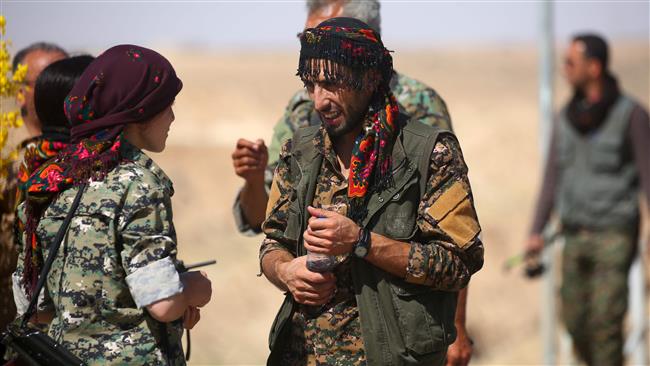
RNA - The US-backed SDF, made up of an alliance of Arab and Kurdish fighters, announced in a statement on Thursday that a May 15 appeal for militants to turn themselves in within 10 days had achieved “positive results”, and that the deadline would now be extended until May 31 based on “requests from the noble people of Raqqah.”
The statement noted that the SDF would ensure the lives of militants, who would turn themselves in regardless of their position. The safety of their families is also guaranteed, according to the statement.
The SDF statement, issued by spokeswoman Jihane Sheikh Ahmad, pointed out that the extension would “allow the greatest number possible of those who were deceived or forced to join to benefit from this opportunity.”
The US administration is set to use the Kurdish People's Protection Units (YPG), a major component of the SDF, in a planned US-led offensive to retake Raqqah, which has served as the main stronghold of Daesh in Syria since 2014.
Ankara views the YPG as the Syrian branch of the Kurdistan Workers' Party (PKK) militant group, which has been fighting for an autonomous region inside Turkey since 1984.
Turkey has stepped up its attacks against PKK positions in northern Iraq and YPG outposts in Syria over the past few months.
Speaking to reporters while on a visit to Montenegro on May 10, Turkish Foreign Minister Mevlut Cavusoglu stated that Washington knows Ankara’s position on the YPG very well and should not take wrong steps in Syria.
The top Turkish diplomat added that the United States needed to distinguish between the YPG and their Arab allies in the SDF, and that the Arabs should be the ones to enter Raqqah.
Turkish President Recep Tayyip Erdogan has also made it clear that he expects a turnaround from Washington on such a move.
Aid deliveries stepped up across Syrian front lines
Meanwhile, the International Committee of the Red Cross (ICRC) says that aid deliveries have markedly increased across front lines in Syria.
ICRC President Peter Maurer said in a statement on Thursday that there was an eightfold growth in aid deliveries last year, expressing hope that the trend would continue this year.
Maurer, however, stressed that needs remain grave as people who have returned to their homes in liberated areas as well as internally-displaced families need more sustainable and long-term assistance.
ICRC spokesman Pawel Krzysiek noted that the rise in the number of aid deliveries across conflict lines came in the light of continued and improved dialogue between representatives of the Damascus government and armed opposition groups last year.
Syria has been fighting different foreign-sponsored militant groups since March 2011. UN Special Envoy for Syria Staffan de Mistura estimated last August that more than 400,000 people had been killed in the crisis until then.
847/940